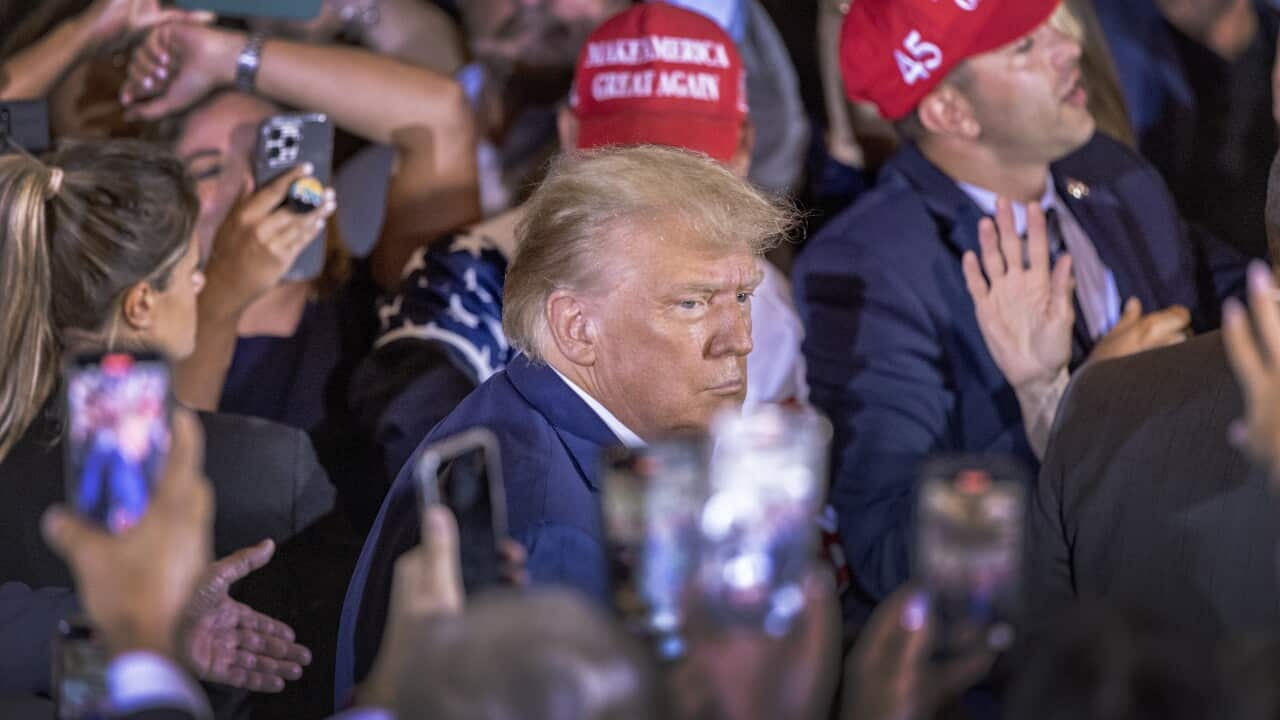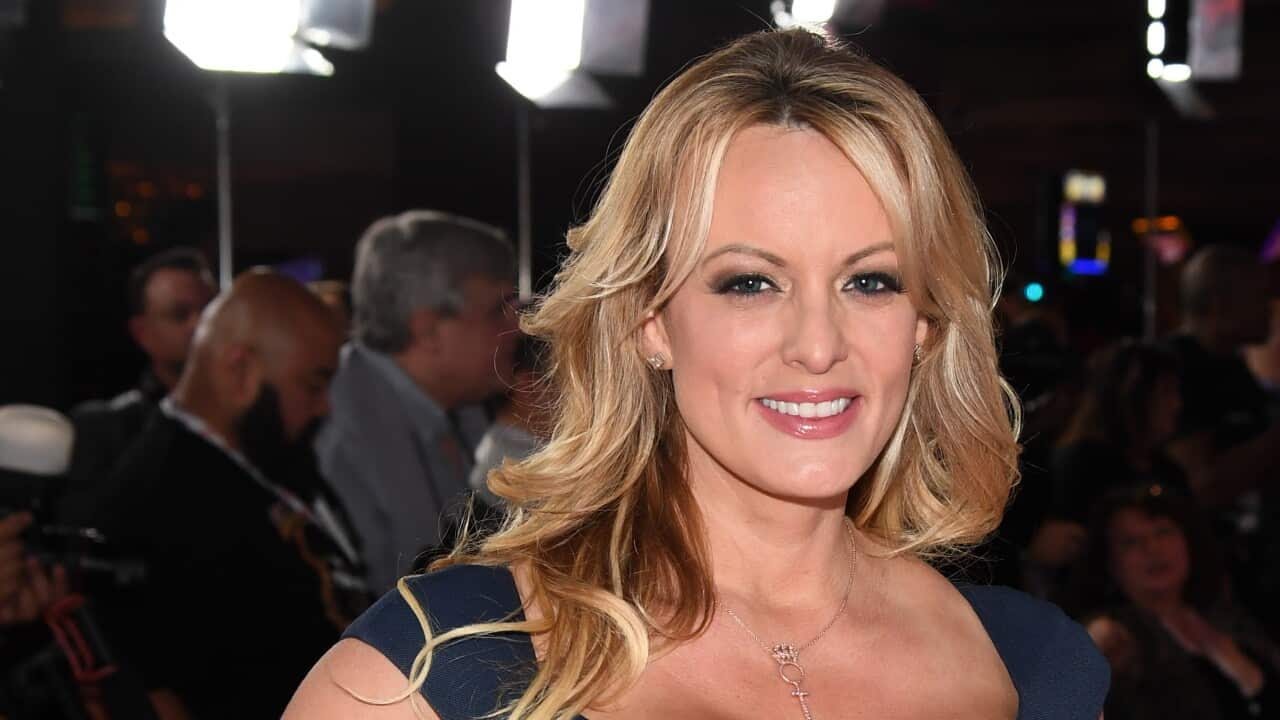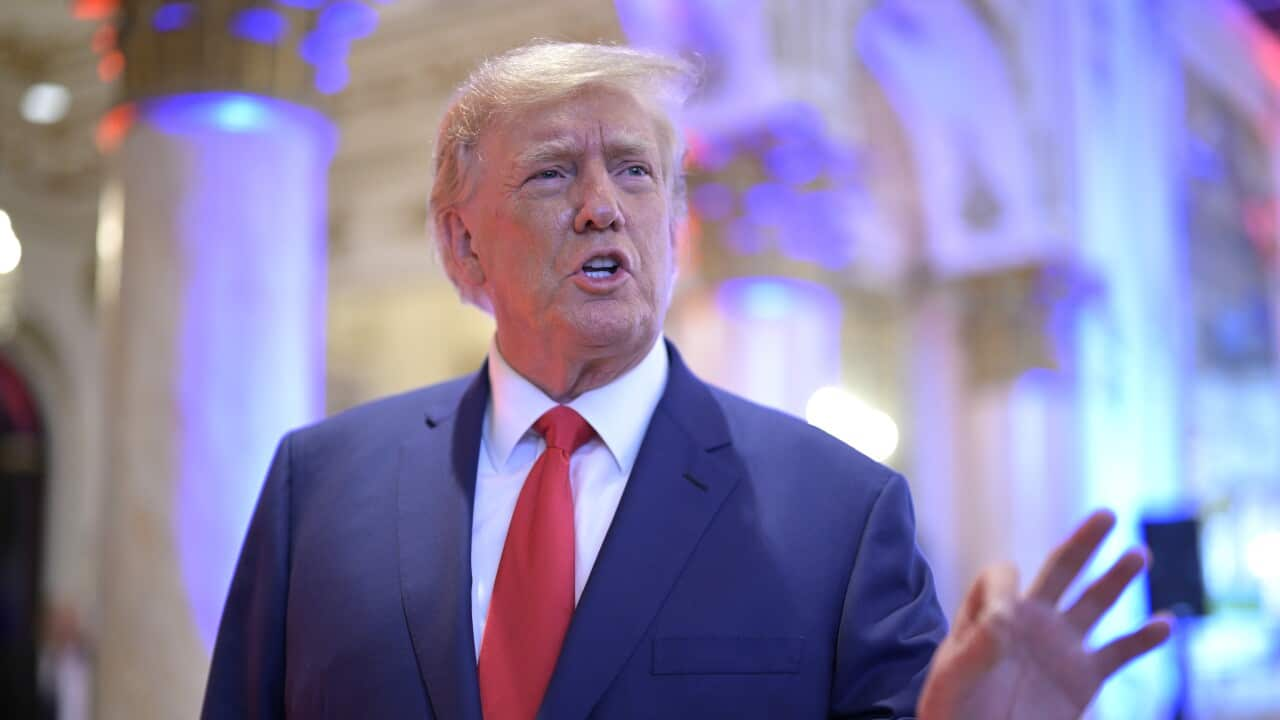Key Points
- Donald Trump is being charged for allegedly concealing hush money paid to a porn star.
- Pro- and anti-Trump demonstrators gathered outside the Manhattan courthouse for Mr Trump's arraignment.
- The former president attacked the prosecution from his Mar-a-Lago residence in Florida.
Former United States president Donald Trump has been at the centre of an unprecedented moment in US politics as he pleaded not guilty to 34 counts of falsifying business records on Tuesday local time.
Mr Trump is the first president in US history, either serving or former, to face criminal charges.
After a historic day that started with an arraignment and ended with a pro-Trump rally at his Florida residence, here's what comes next for Mr Trump and his legal team.
What is Donald Trump being charged for?
The events underlying the criminal case against Mr Trump - hush money payments to suppress stories about extramarital affairs - took place nearly seven years ago.
But any potential trial could be more than a year away. That raises the possibility that the former US president could face a jury in a Manhattan courtroom as he seeks a return to the White House - or even after the November 2024 election.
After Mr Trump pleaded not guilty to 34 felony charges of falsifying business records on Wednesday, Judge Juan Merchan set the next court hearing for 4 December.
Prosecutors said they plan to request a trial date of January 2024, while Mr Trump's legal team suggested a spring 2024 trial.
Mr Trump's case is far from typical, and his lawyers say they intend to fight it aggressively with a blizzard of paperwork.
That could conceivably push any trial past the timetable floated by the two sides and closer to the presidential election.
The state-by-state contests for the Republican nomination is scheduled for the first half of 2024. The party will formally select a nominee in mid-2024 to face the Democratic nominee - likely incumbent President Joe Biden.
If elected, Mr Trump would not hold the power to pardon himself of state charges. But putting a president-elect or president on trial for state charges would enter uncharted legal waters.
"This is so unprecedented that it's hard for me to say," said Karen Friedman Agnifilo, a former Manhattan prosecutor. "I think it's tricky."
Aside from the New York case, Mr Trump faces federal criminal investigations over allegations he tried to overturn his 2020 election defeat and mishandling of classified documents. He also faces a Georgia investigation into his attempts to fight his 2020 defeat in that state.
How will Donald Trump fight the charges?
In his early career in real estate, as a television celebrity and then in politics, the famously litigious Mr Trump has employed aggressive counter-attacks and delay tactics when confronted with legal challenges.
Mr Trump has accused Manhattan District Attorney Alvin Bragg, an elected Democrat, of targeting him for political gain and could try to seek dismissal of the charges on those grounds.
He has complained that Mr Merchan, the judge, treated his company unfairly when he oversaw a criminal tax-fraud trial last year.

Mr Trump's life in a nutshell. Source: SBS News
Mr Trump's lawyers would have to file a motion showing why Mr Merchan is unqualified to handle the case. That would likely be denied as there is no basis for recusal, said Marc Scholl, a former Manhattan assistant district attorney.
Likewise, any request to change the venue would likely be denied this far in advance of a trial, Mr Scholl said.
Falsifying business records is typically a misdemeanor punishable by no more than one year in prison under New York state law.
Mr Bragg elevated those charges to felonies, each carrying a maximum of four years in prison, by arguing that Mr Trump falsified those records to cover up campaign-finance violations.
Using state election law in that manner - and in a case involving a federal, not a state, candidate - is an untested legal theory, legal experts said, and Mr Trump's lawyers would be sure to challenge it.
Mr Trump could also challenge whether the statute of limitations - five years in this instance - should have run out. That deadline has been extended due to the disruptions caused by the COVID-19 pandemic.
Under New York law, the statute of limitations can also be extended if the defendant has been out of state, but Mr Trump may argue that serving as US president should not apply.
"This is a dream case for defence attorneys," former prosecutor David Shapiro said last week.
What has Donald Trump said since the arraignment?
Mr Trump accused the criminal case against him of strategically destroying his chance of a successful run in the 2024 presidential election.
He held a media briefing on Tuesday evening after travelling back to his Mar-a-Lago residence in Palm Beach, Florida, following the arraignment.
He said the US has become "lawless" and is "going to hell".
"The only crime that I have committed is to fearlessly defend our nation from those who seek to destroy it," Mr Trump told supporters, journalists and Republican figures.
"I never thought anything like this could happen in America.
"This fake case was brought only to interfere with the upcoming 2024 election and it should be dropped immediately."
The former president also reiterated his baseless claims of electoral fraud in the 2020 election that he lost to Joe Biden. Mr Trump is now seen as an early frontrunner candidate in the Republican Party's presidential nominating contest for the next election.

Former US President Donald Trump exits Trump Tower to attend court for his arraignment. Source: Getty / Noam Galai/GC Images
"Everybody said this is not really an indictment. There's nothing here. Our lawyers came to me and they said there's nothing here," he said.
Mr Bragg defended the charges.
"We today uphold our solemn responsibility to ensure that everyone stands equal before the law. No amount of money and no amount of power changes that enduring American principle," Mr Bragg told journalists.











